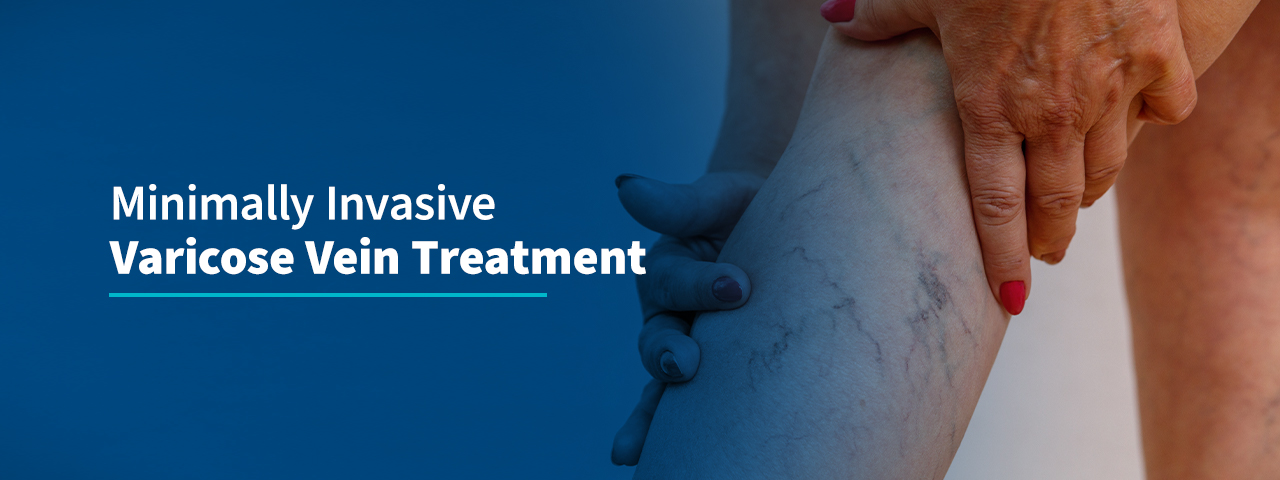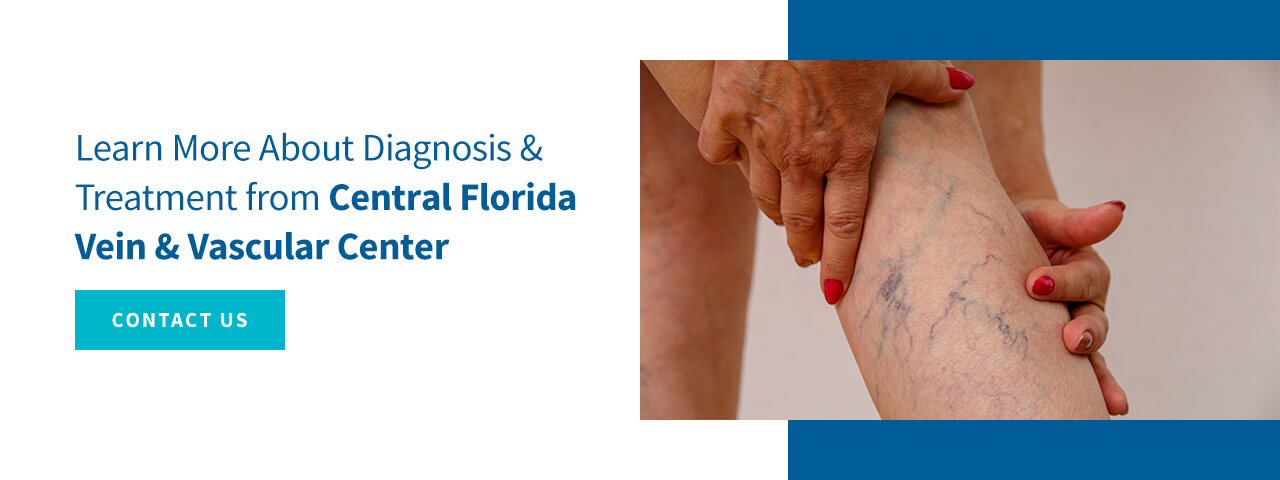
There are several treatments, and even more variations of those treatments, for varicose veins. In this post, we will take a look at a few of these treatment options and talk about when each may be best. Of course, if you are suffering from venous insufficiency and varicose veins, your best course of action is to come into Central Florida Vein & Vascular Center, home to the Orlando area’s premier vein experts, who also provide spider vein treatment in Orlando, to talk about what is best for you in your particular situation.
While varicose veins can be a cosmetic nuisance, they also create unwanted symptoms such as pain, itchiness, cramping, swelling, and bleeding. What’s more, untreated varicose veins also can lead to dangerous medical conditions. As these conditions will typically worsen if left untreated, remedying the situation is a medical necessity. When your veins start causing pain, it is typically a strong indicator that treatment is needed.
There are two main treatment options currently in use for eliminating a patient’s sometimes painful and dangerous varicose veins: laser ablation therapy and sclerotherapy. Both courses of action have similar outcomes of relieving the condition and getting rid of the problem vein(s).
In the past, a vascular surgeon, with a scalpel in hand, would perform a traditional surgery to remove varicose veins. While this type of treatment is no longer the norm in the United States, traditional surgical techniques are sometimes preferred for larger varicose veins. Traditional vein-removal surgery is usually referred to as vein stripping. Vein stripping involves cutting into the skin, tying off (ligating) the vein with a surgical wire, and then removing (stripping) the vein. Typically, the patient is put under general anesthesia and the recovery time is anywhere from one to four weeks.
You may be pleased to learn that vein stripping has, for the most part, become obsolete. Today, there are multiple minimally invasive procedures to remove varicose veins. Not only are these treatment options less painful, but the recovery time is greatly shortened.
Less invasive procedures, such as the previously mentioned laser ablation and sclerotherapy, are another option to treat varicose veins. With these minimally invasive options, success can be achieved without the need for surgery.
Laser ablation therapy and sclerotherapy achieve this success by causing the targeted varicose veins to close off. A third treatment option, called ambulatory phlebectomy, is a “mini-surgical” procedure used in rare and specific instances.
Various ablation treatments use lasers, and, in some cases, radio waves, to create a thermal reaction that seals off the varicose veins while the patient is under a local anesthesia. After making a small cut in the skin near the varicose vein, a vascular specialist then inserts a small catheter into the vein. A device at the end of the catheter then uses heat to seal off the vein. Typically, this is done in the doctor’s office on an outpatient basis and the recovery time is extremely short.
Central Florida Vein & Vascular Center specializes in the use of endovenous laser treatment (EVLT), a type of laser ablation therapy that employs the use of an ultrasound to see the veins clearly. With EVLT, patients experience little pain, are able to work immediately after the procedure, and usually return to normal activities the following day.
Sclerotherapy often is used to eliminate varicose veins, as well as to treat spider veins. This procedure involves the injection of a liquid chemical (in this case, called a sclerosant) via a tiny needle into the offending vein(s). The chemical does no harm to the patient but causes the vein to scar and close off. A small amount of liquid chemical is injected into a vein using a very fine needle. The chemical scars the inner lining of the vein, causing it to close off. The body then absorbs the vein. There’s no pain and no scarring. Veins tend to respond with only two or three treatments.
Central Florida Vein & Vascular Center features ultrasound-guided foam sclerotherapy, a technique that employs the use of an ultrasound machine to pinpoint the origin of the veins and direct the location of the injections. Central Florida Vein has found this form of sclerotherapy to be a superb option with impressive long-term cosmetic results.
A treatment procedure known as ambulatory phlebectomy is more aligned with traditional surgical techniques, but is not as invasive as traditional vein ligation and stripping. With this procedure, a surgeon makes small incisions in the skin and then inserts a retractor or hook to remove the varicose vein(s). Local anesthesia is used (either on an inpatient or outpatient basis), and the patient often can resume his or her daily routine right away.
Nobody is too old to have their varicose veins treated. You can seek out treatment for varicose veins at any age. Varicose veins can appear in adolescents or older adults, but they are more common with each decade of life that passes.
Often, the older you get, the more important treating your varicose veins becomes.
Like all medical procedures, there will be some risk of developing side effects. However, varicose vein treatment is relatively safe and side effects are rare.
There is no best time of year for varicose vein treatment, as each season will offer different pros and cons.
All treatments will have pros and cons. Consulting with a vein care specialist is the best first step. They may administer a venous reflux test to help them decide on the best treatment option for you.
Depending on several factors from the type of treatment received to your age, recovery from varicose vein treatment will look different for everyone. Your doctor will provide you with the best course of action for both a quick recovery and ways to keep your legs looking good.

While it is a good thing to be familiar with the various procedures, please don’t use this information to try and decide which treatment is best for you. The reality is that only your vascular doctor can tell you which is best for you and your particular circumstances.
Perhaps what may be most important is to know that your varicose veins won’t go away if you simply ignore them. So, while not all varicose vein treatments are created equal, there is a treatment plan that is right for you, and it definitely does not include simply doing nothing. If you’ve had an unfavorable experience in the past, keep in mind that because of advancements vein treatments and in medical technology in general, treating venous disorders is much improved over what it used to be. New same-day procedures, such as the ones you’ll find at Central Florida Vein & Vascular Center, are safe, minimally invasive, essentially painless, and have an extremely short recovery time. The vascular experts there would be more than happy to talk with you about the latest treatments, including endovenous laser treatment, ultrasound guided foam sclerotherapy, spider vein treatment in Orlando, and other innovative methods to eliminate varicose veins. Simply call Central Florida Vein & Vascular Center today at 407-545-3385 or 352-658-5547. And remember, it’s extremely important to talk about the pros and cons of all the various treatments with an experienced vascular surgeon.